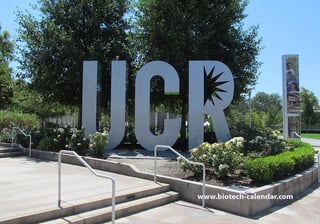The National Institute of Health (NIH) awarded the University of Georgia a $2.27 Million grant to study a powerful gene editing tool known as CRISPR-Cas. In nature, CRISPR-Cas is a defense mechanism that single-celled organisms such as bacteria use to ward off attacks from viruses and other invaders. For scientists the CISPR-Cas9 system holds a potential tool to edit precise sequences of DNA and silence the genes that predispose some people to diseases such as cancer, diabetes, cardiovascular disorders and mental illness.
Read MoreTags: biomedical research, University of Georgia Athens, University of Georgia, DNA Research, UGA, Biotechnology Vendor Fair, Biotechnology trade show

Next week PLOS journal will publish an exciting article featuring a new biological discovery. Scientists at UC Riverside have discovered critical information regarding insect development.
This study uncovers the use of DNA as an organism’s biological clock in sexual development, or metamorphosis in insects. With applications in new cancer treatments, agriculture, human health and potential applications in zoology, this study opens gateways of undiscovered information. This is one exciting example of the potential in research and the intersectionality in life science, molecular biology and biotechnology supplies.
Read More
Tags: CA, agriculture, DNA Research, Cancer, Genome, UCR, Fruit Fly
Each year millions of Americans risk undergoing surgery for a variety of problems such as organ transplants, mending broken bones and cosmetic surgeries. Often surgery is necessary to fix ongoing health problems with the benefits of the surgery usually outweighing the risks. Despite the potential risks to surgery patients, in the United States more than 48 million surgeries are performed each year. In most cases, undergoing surgery is relatively risk free, but not always.
Tags: 2014, Bioscience research, 2013, biomedical research, University of Colorado, Medical Research, Drug Discovery, DNA Research, Southwest, National Jewish Health, Anschutz Medical Campus, BioResearch Product Faire Front Line Event, BioResearch Product Faire Event, Denver, CO, public health, NJH, Fitz, Aurora
The summer of 2012 is set to go down as one of the driest and worst years for US farmers, but it's proving to be an excellent season for fruit science, especially at the University of Arizona, Tucson. In June we saw the sequencing of the tomato genome (technically a fruit), which was a breakthrough in genetics research. The Arizona Genomics Institute has now cracked another complex code: the genome of the banana.
Tags: University of Arizona, DNA Sequencing, genomic research, DNA Research, genome research, banana, University of Arizona Tucson Research, Southwest, 2012, biology research, Arizona, AZ, Genetics, Front Line event, genomics research, Tucson, UA

